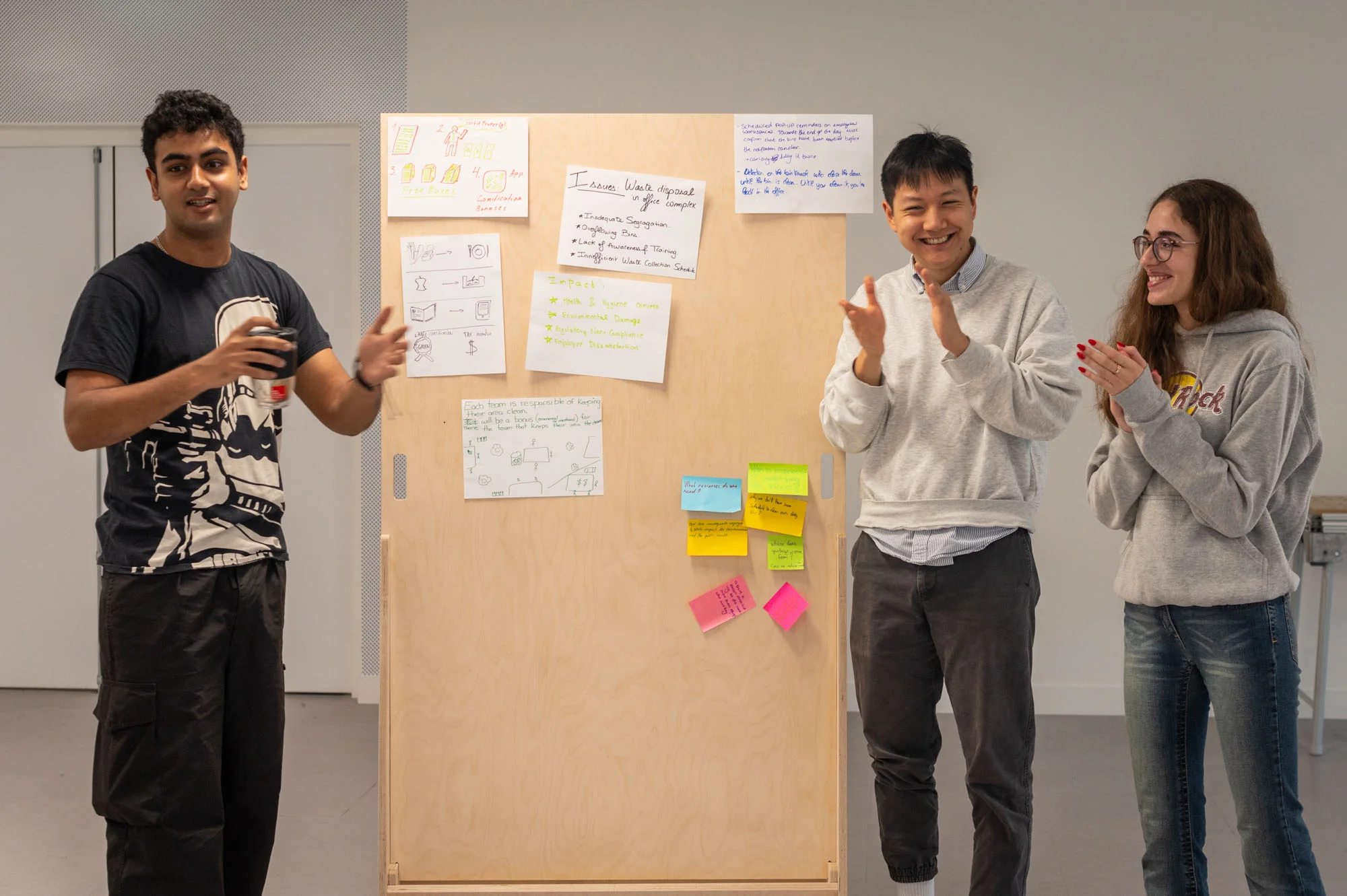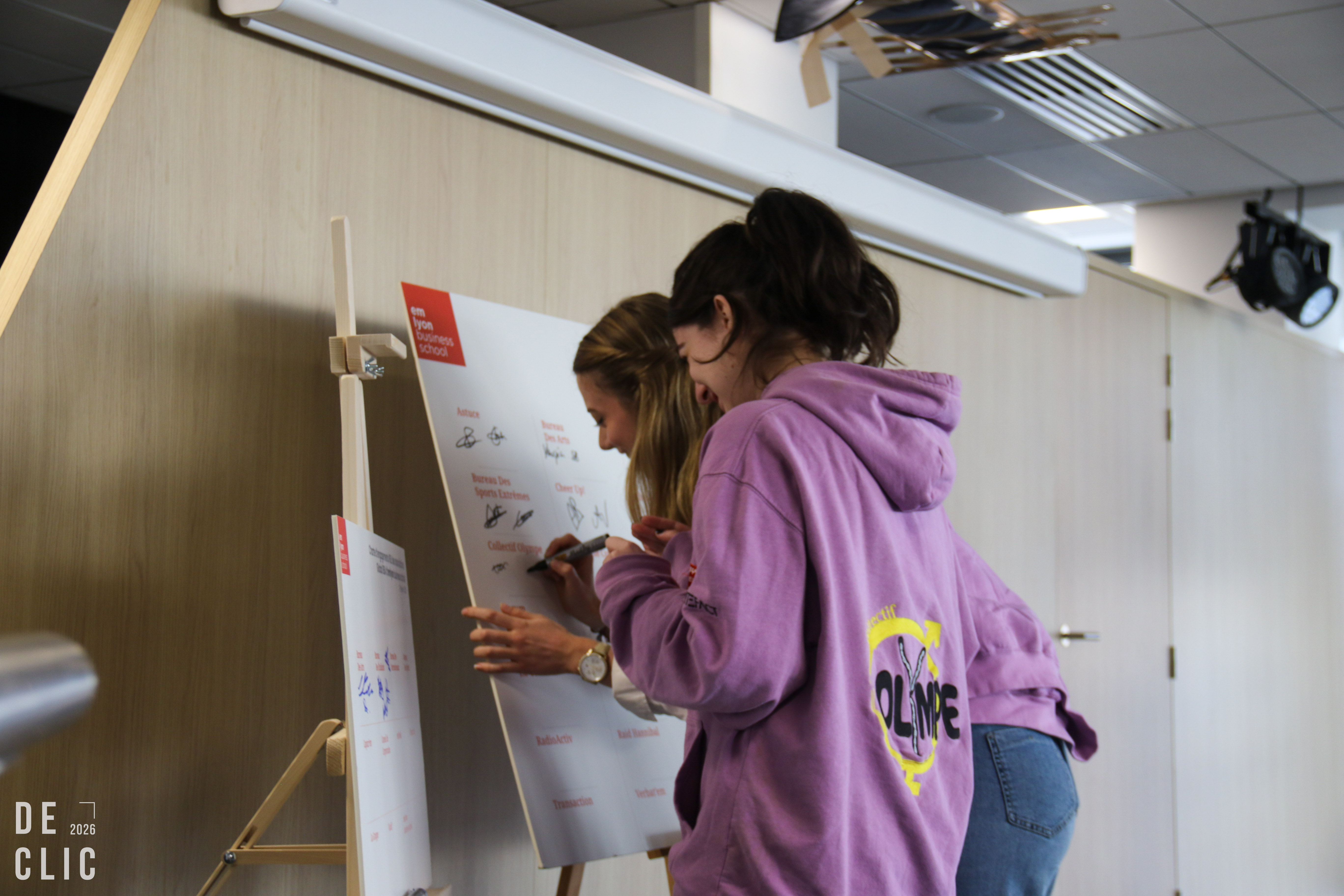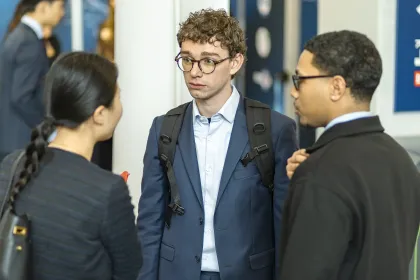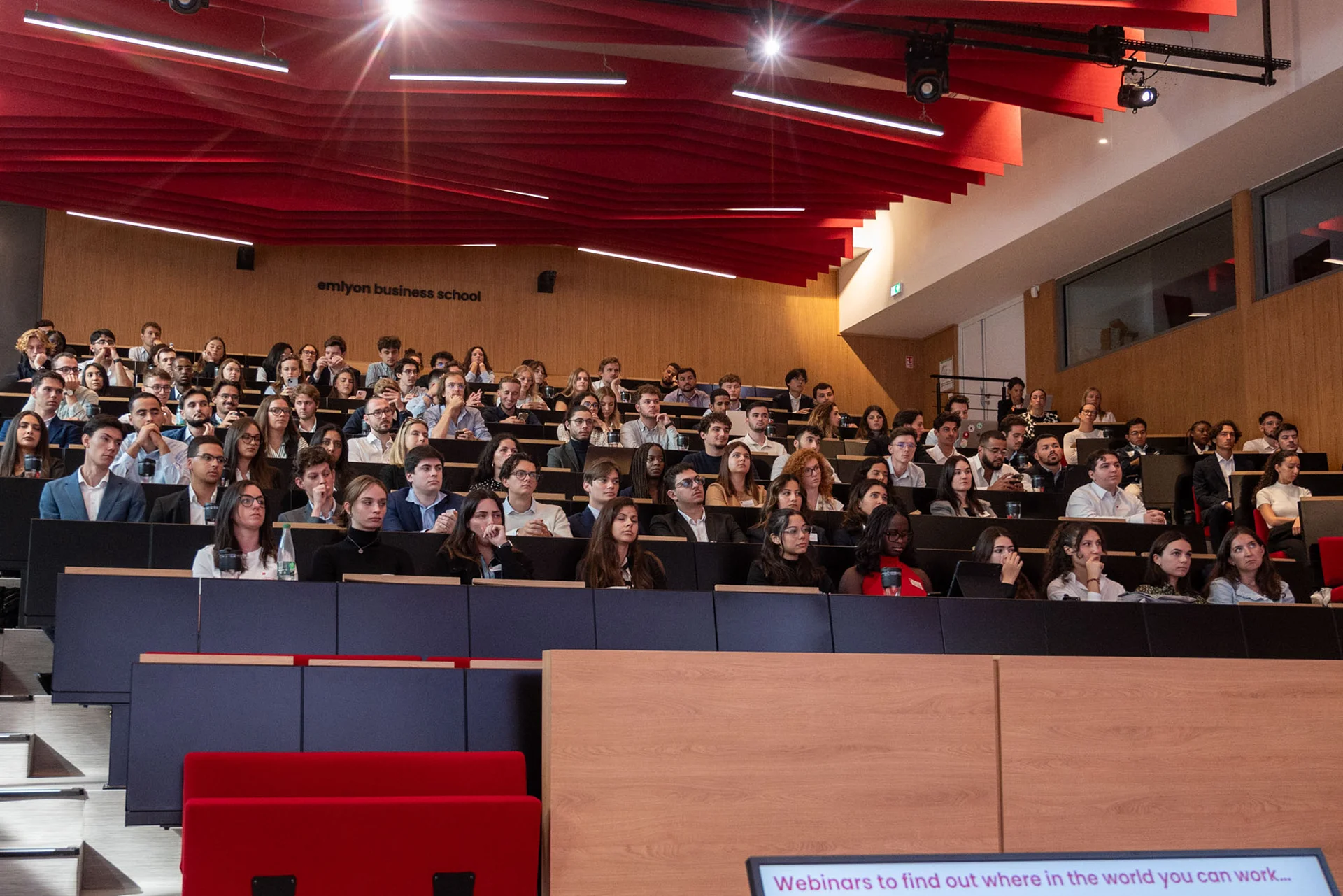
Newsroom
Résultats 747 newsrooms

News
emlyon and INSA Lyon strengthen their partnership with the creation of a joint Engineering–Management double degree

Launch your international business career with the Global BBA

News
Sports, Entertainment, Lifestyle: understanding the market dynamics

Testimonials
Hospitality training grounded in real-world practice

News
CSR Charter: emlyon's student associations reaffirm their commitment

News
Management of Risk: A Strategic Focus for emlyon’s Teaching and Research

News
Mastering the mental game of sales: a masterclass for sales excellence students

Testimonials
From tennis courts to Adidas: how Lucas Bollé launched his sports career

Testimonials
From MSc to First Marketing Role : Sarah Cherbib’s experience

News